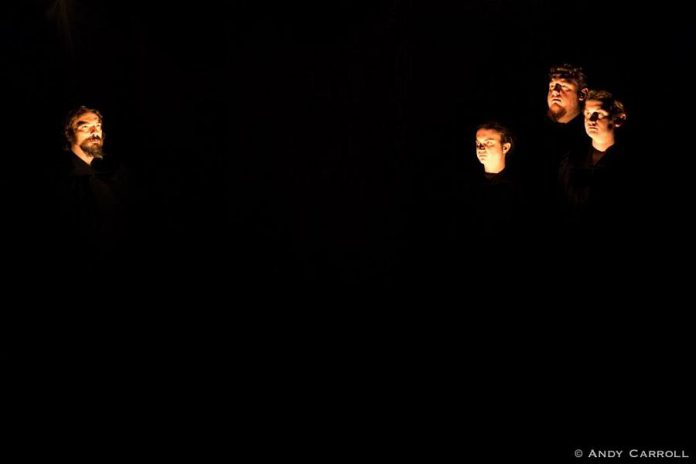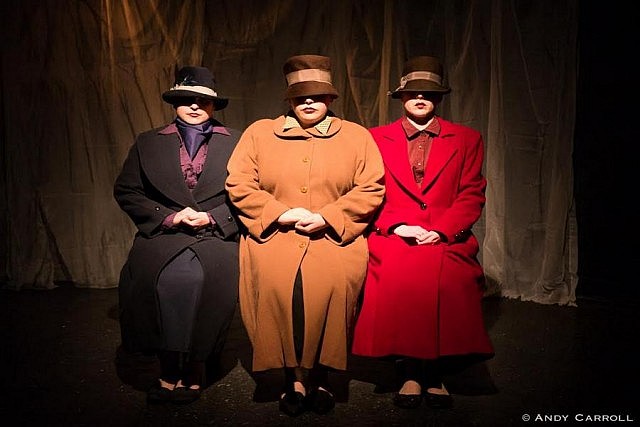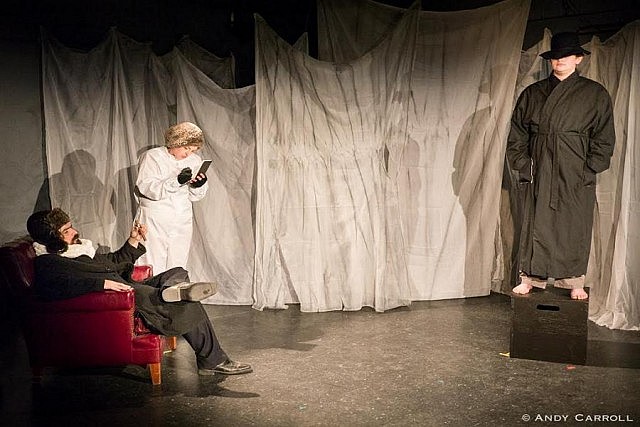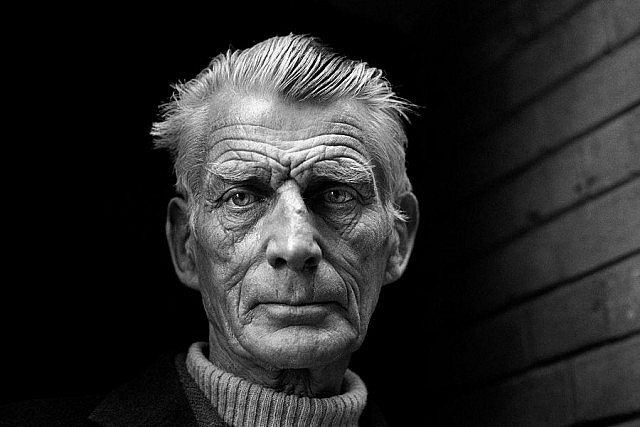
In previous years, The Theatre on King (TTOK) has presented a special series of plays that tie into one another. From Pennies to Heaven to The X-Files, these have proved to be their most successful productions and provide a chance for TTOK’s executive director Ryan Kerr to bring together Peterborough’s young actors with some of the community’s more seasoned ones.
This year, Ryan has decided to forego the annual serial and instead put together a festival of Samuel Beckett plays. Unofficially calling it “Beckett Fest”, Ryan along with his group of TTOK regulars are presenting six Beckett productions in two months. Beckett Fest begins on Thursday, April 14th with a staging of three of Beckett’s short plays: Catastrophe, What, Where, and Come and Go.
“Personally, I think Samuel Beckett is probably one of the best playwrights of the 20th century,” Ryan says.
Born in Ireland in 1906, Beckett was an avant-garde playwright, novelist, and poet who became one of the key figures in “the theatre of the absurd.” Living in Paris for the majority of his adult life, Beckett was renowned for his bleak — but often humorous — examinations of the human condition. A recipient of the Nobel Peace Prize for Literature in 1969, Beckett was one of the last of the modernist writers upon his death in 1989.

In Beckett’s plays, it is often the unsaid things that are important, and the silences are often more powerful than the dialogue.
“There is a big difference in Beckett’s shows between a pause and silence,” Ryan explains. “If you take them out and ignore his stage directions, the shows don’t make sense. But as soon as you put the stage directions in, they make all the sense in the world.”
Ryan has been trying to stay as faithful as possible to Beckett’s original vision while producing this group of shows.
“I thought I’d maybe try to modernize things, or try to do something new,” he says. “But the more that I started working with the scripts, the more I realized that we don’t need to. It wasn’t how they were written and they still translate. They are as important now as they were then.”
Ryan has also taken special notice of Beckett’s very specific stage directions — as a way to present the shows exactly as Beckett intended them to be.
“In Come and Go, there are only 125 words in the play, yet his stage directions have many more words than that,” Ryan explains. “Beckett was so particular about his shows and for people to actually pay attention to what he wrote. Generally, when you’re a director, you toss out the stage directions. But, in a lot of what Beckett wrote, he actually thought through every single action.”
Beckett Fest continues with Endgame, running from April 21st to 23rd. Then, in May, Kate Story will be directing Krapp’s Last Tape. The festival ends with the Beckett classic Waiting for Godot.
“It’s actually been very fascinating working on so many of the same playwright’s shows,” says Ryan. “Waiting For Godot was the first play he wrote, while What, Where was his last. It’s been very interesting to work on all kinds of shows that go from the beginning of his career to the end of his career, and seeing that there are similar themes, ideas, and lines in every single show.”

“As existential and depressing as some people seem to think Beckett is, I find that there was an amazing amount of love in his productions,” Ryan reveals. “There’s also a lot about being human, about loss, and about memory. He writes about what it is to live, what is life, and asks how we pass the time. That’s all we do as humans ultimately — we pass time, and we make choices to pass that time.”
By immersing himself in Beckett’s plays, Ryan notes he has been looking at the work in a different light and coming up with new themes in the material.
“A lot of people consider him to be someone who just wrote a bunch of absurd plays,” explains Ryan. “But the more that I do Beckett’s shows, the more I don’t think he is absurd at all. I think he’s a realist. While the situations may be unnatural, everything he talks about is real — even though it’s said in an uncomfortable situation.”

TTOK’s presentation of Beckett’s Catastrophe, What, Where, and Come and Go is a powerful and visually stunning night of theatre, performed with garish beauty and cold passion.
While you may leave the theatre wondering how to interpret each of the moody and surreal performances, it’s a perfect night to cut your teeth on the works of Samuel Beckett, and an introduction to the next six weeks’ worth of performances at TTOK.
Catastrophe, What, Where, and Come and Go runs from Thursday, April 14th to Saturday, April 16th at TTOK with show time at 8 p.m.. Tickets are $15, with a pay-what-you-can option on opening night.


























